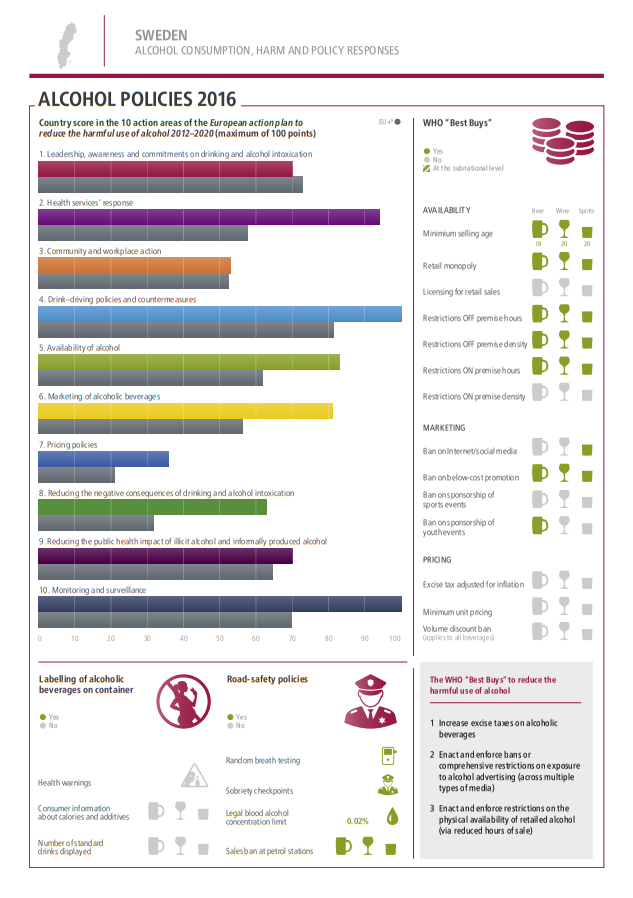C.A.N. is the Swedish Council for Information on Alcohol and Other Drugs conducting the large scale population survey “Monitormätningarna” – meaning monitoring measurements.
The new C.A.N. report about alcohol consumption in Sweden in 2019 takes into account both registered alcohol sales and unregistered alcohol consumption. Registered alcohol is sold through official sales channels in Sweden, such as Systembolaget, restaurants and in grocery stores (low strength alcohol). Unregistered alcohol is brought into the country in connection with travel, home production, purchase of smuggled alcohol and purchases via the internet. Unregistered alcohol is calculated through ongoing telephone interviews with people aged 17-84.
Key findings from the report
- In 2019, the total consumption amounted to an average of 8.67 liters of pure alcohol per inhabitant 15 years and older. That is 2% lower than in 2018.
- During the last 10-year period, total consumption has decreased by 9%.
- Systembolaget’s sales and passenger imports increased in 2019.
- There has been a decrease in restaurants’ sales, purchases of smuggled alcohol, folk beer sales and home production.
- In 2019, the registered part accounted for 82.2% of total consumption and the unregistered part accounted for 17.8%.
- The unregistered part has decreased by 6% since 2018.
- Over the past ten years, the unregistered share of alcohol consumption has fallen by 27%.
- Wine accounts for the largest share of total consumption with 42.8% and strong beer is in second place with 31.9%. There have been no major changes in this regard compared with the previous year.
Strong alcohol policy in Sweden and high support by the people

As the World Health Organization’s Regional Office for Europe reports in their 2019 fact sheet, Sweden has a comprehensive, modern national alcohol policy system. Sweden scores higher than the European regional average on all but one of the 10 action areas in the European alcohol action plan 2012 – 2020.
But to build on the momentum of declining alcohol use, Sweden has options to further improve its alcohol policies. In 2013, the country committed to a voluntary target of a 10% reduction of alcohol per capita consumption until 2025 in order to improve health and well-being. As this target is in sight, the government has policy options to achieve even bigger successes.
One of the main aspects is alcohol tax indexation. Recently Sweden announced an alcohol tax increase which is to take effect from 2023. However, if alcohol taxes are indexed according to inflation, wages and purchasing power it would prevent the taxes from eroding over time. Tax erosion makes alcohol cheaper for people as time goes by.
Recent studies by Karlsson in May, 2020 and Karlsson and colleagues in April, 2020 on Swedish people’s opinion of alcohol policy have shown that they view alcohol as a societal problem and are in support of improved alcohol policy solutions. The high support by the public for alcohol control makes it easier to implement effective evidence-based policy solutions to reduce the alcohol burden in the country.
